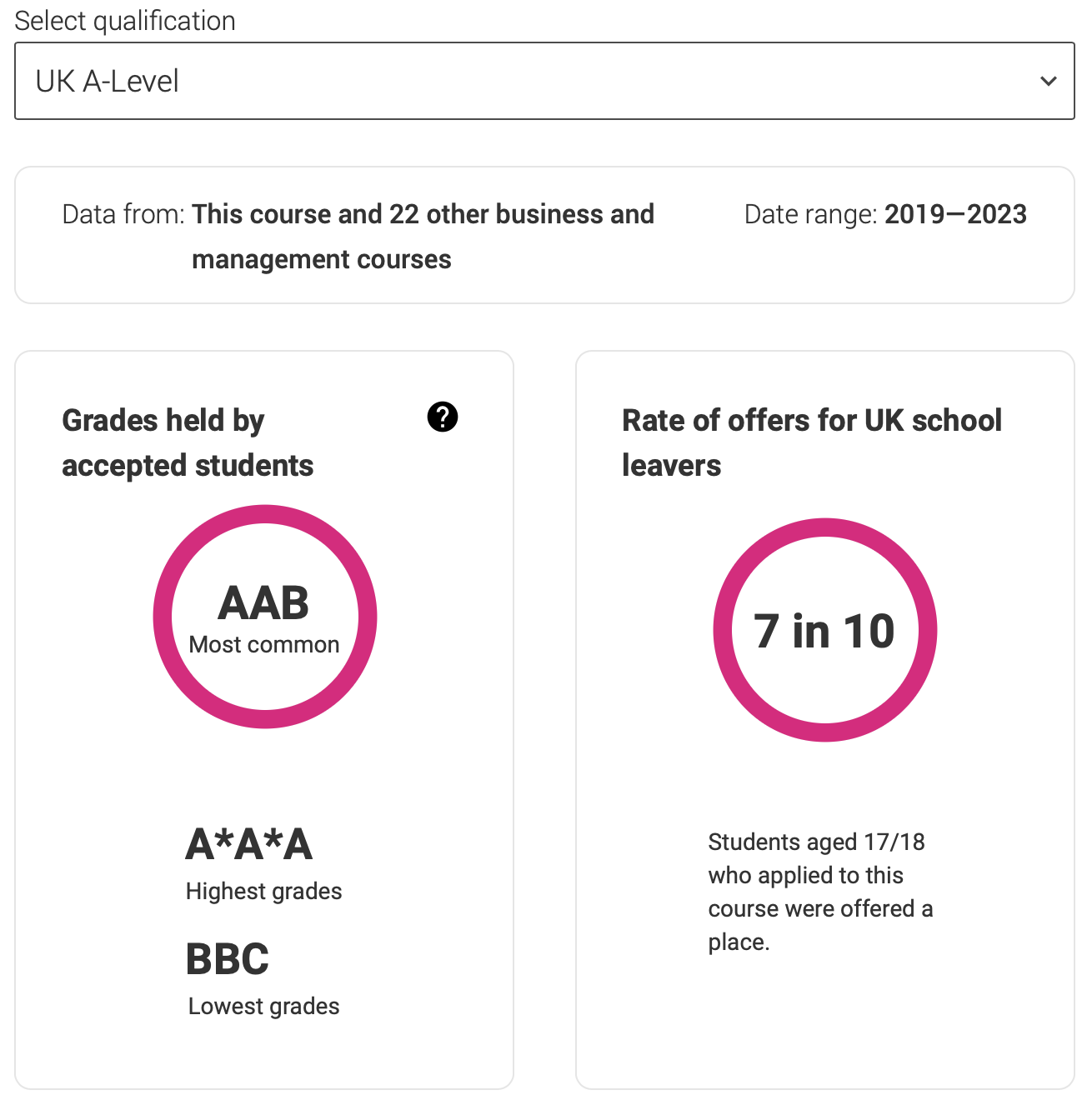Entry Requirements: The Numbers Don’t Add Up
The Guardian League Table lists the University of Glasgow as number 1 in the UK for “qualifications on entry”, showing an average of 227 UCAS points.
Sounds impressive, right? But what does that number actually mean? It makes up 15% of Glasgow’s entire Guardian ranking — despite being based on data that can be wildly misleading.

Let’s Break It Down
The Guardian explain their methodology: they calculate the average tariff score of first-year, full-time, under-21 students. But only if their qualifications can be converted into UCAS points. That’s already a big caveat — and it gets murkier from there.
227 UCAS points is the equivalent of just over four A*s at A-level. Here's a quick refresher on how UCAS points work:
- A* = 56 points
- A = 48 points
- B = 40 points
- C = 32 points
- D = 24 points
- E = 16 points
So you might think Glasgow are only accepting students with straight A*s and nothing less.
But Here’s the Twist
If you head over to UCAS’s official data for Accounting and Finance at Glasgow, the actual picture is very different.
According to UCAS, the highest grade profile accepted was A*A*A. Not four A*s. Not five. Just three subjects. Already that’s well below the 227 average The Guardian imply.
Even more telling: the lowest accepted profile was BBC. That’s a total of 112 UCAS points — less than half the supposed average.

So… what’s going on?
The Problem With Averages
League tables love averages — but averages don’t tell the whole story. They can be skewed by a small number of students with lots of qualifications. Think: students with extra Highers, BTECs, Extended Projects, or international qualifications that convert to big tariff numbers.
And remember: the Guardian’s figure excludes students whose qualifications don’t convert cleanly to UCAS points — which might disproportionately cut out contextual offers, mature students, or those entering with vocational routes.
So What Should You Trust?
Don’t obsess over “qualifications on entry” scores — especially when they make up 15% of a university’s league table position. They’re not what universities ask for, and they’re definitely not what all students actually get.
Instead, go straight to the source: UCAS now shows the actual grades that were accepted on each course, not just what was advertised. That gives you a much clearer idea of where you stand.
Confused by the league tables? You should be. That’s why UniversityRanking.co.uk focuses on what actually matters — how students experienced their course once they got there.
Because what you bring in matters less than what you get out.
